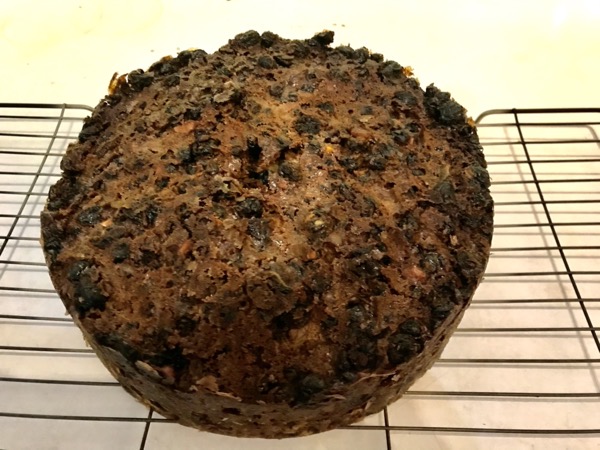2020s
-
Still needs an apostrophe. ↩︎
-
Though see my later post. I think I’ll be doing it slowly from now on. ↩︎
-
I’m always confused about how you should punctuate that idiom. I’m asking a question: it needs a question mark. But neither of these look right:
- How is it going? you ask.
- How is it going, you ask?
It should really be:
- ‘How is it going?’ you ask.
But that makes it too much like I’m writing dialogue in a a second-person narrative, and it doesn’t really fit with the overall feel of a blog post.
The way I’ve written it above has no question mark at all, and that can’t be right. ↩︎
-
I’ve yet to learn what ‘Contemporary Writing 1’ is, or was, or if there ever was one. ↩︎
-
I’d argue that YA is a target market, not a genre, but never mind. ↩︎
-
It was during my primary school years that Scotland introduced the week-long half-term break in October. ‘The October Week,’ as it was called, and it was definitely a new thing at the time. I was aware of it particularly because my Mum was a primary school teacher. I can’t find any evidence of it now, because there are so many other pages about half-term holiday dates and history projects for October half term. But if my memory is not totally faulty, that’s the truth of it. ↩︎
The Monsters We Deserve by Marcus Sedgwick (Books 2020, 30)
The first of my Christmas books, so I could count it as next year’s; but since I had finished it by the day after Boxing Day, it definitely belongs to this year. And it also brings me to a nice round 30 books for the year.
A writer is isolated in a lonely alpine chalet to write about a book he hates. Which very quickly turns out to be Frankenstein. He is visited by – well, that would be telling, but just let’s say that the novel he’s writing about and its creator are very significant.
It’s written – at least at first – as if it was the writer writing to his publisher, though that conceit soon disappears. There are various details around the way it’s printed, that look as if they should be significant, but they aren’t really.
It’s good. Check it out.
Endings
Well, this year of infamy is finally lurching towards its end. I don’t think too many of us will be sad to see the back of 2020.
With it, though, we have to also say a final goodbye to Britain’s membership of the European Union. I don’t think too many of us will be happy about that. Even people who are pleased about it now will realise over time that leaving is a huge mistake.
At least with the exit agreement in place, we shouldn’t see the immediate shortages and queues at the ports that we feared. That agreement is problematic, though.
To get an example of its dangers, I refer you to David Allen Green’s Law and Policy Blog. Yesterday’s post is entitled ‘The Bill implementing the Trade and Cooperation Agreement is an exercise in the Government taking power from Parliament,’ and in it he says:
The draft bill is complex and deals with several specific technical issues, such as criminal records, security, non-food product safety, tax and haulage, as well as general implementation provisions.
Each of these specific technical issues would warrant a bill, taking months to go through the normal parliamentary process.
But instead they will be whizzed and banged through in a single day, with no real scrutiny, as the attention of parliamentarians will (understandably) be focused on the general implementation provisions, which are in Part 3 of the draft bill.
[…]
This provision will empower ministers (or the devolved authorities, where applicable) to make regulations with the same effect as if those regulations were themselves acts of parliament.
In other words: they can amend laws and repeal (or abolish) laws, with only nominal parliamentary involvement.
There are some exceptions (under clause 31(4)), but even with those exceptions, this is an extraordinarily wide power for the executive to legislate at will.
These clauses are called ‘Henry VIII’ clauses and they are as notorious among lawyers as that king is notorious in history.
Again, this means that parliament (and presumably the devolved assemblies, where applicable) will be bypassed, and what is agreed between Whitehall and Brussels will be imposed without any further parliamentary scrutiny.
– David Allen Green, The Bill implementing the Trade and Cooperation Agreement is an exercise in the Government taking power from Parliament
The whole piece is worth reading (and note the Hitchhiker’s Guide to the Galaxy references).
Take back control, right enough: take it back from the elected representatives of the people, and give it to the executive.
2020 made 2016 look like 2012. 2021 offers hope to the world as the Covid vaccines roll out, and hope for America as Trump is rolled out of the White House. But things still look decidedly dodgy here in the UK.
Xstabeth by David Keenan (Books 2020, 29)
Following on from number 27, then, we have David Keenan’s latest novel. Again we’re in a kind of magic-realist setting, without any obvious magic. In St Petersburg a young woman lives with her father, who is a failed or fading musician. The daughter – who is the viewpoint character – starts a relationship with her father’s friend, and gets pregnant. She keeps all of this from her father.
Her father, meanwhile, puts on a show at which he performs some seemingly-otherworldly music. He starts to believe that it was actually created by some sort of mystical entity called Xstabeth.
For reasons that escape me at the moment they go to St Andrews,1 where they get involved with a professional golfer. The ‘tenuous, ambiguous, confusing event’ that I referred to in the earlier note happens from this side too, but you’d only notice it if you’d read The Towers The Fields The Transmitters.
The novel is presented as if it were an academic work about a novel calle Xstabeth, by someone called ‘David Keenan,’ who killed himself by jumping from a tower in St Andrews. So there are cod-academic sections or extracts between the chapters.
It’s all very meta, and I enjoyed it, but I’m not sure I totally understood it. The strangest thing about it, in some ways, is the use of punctuation. Almost the only punctuation used is the full stop. But that doesn’t just mean he’s avoided using commas and semicolons, and constructed appropriately short sentences. It reads as if he wrote it with conventional punctuation around dialogue and so on, and then replaced every other mark with the full stop.
For example, consider this:
This is singular. He said. This is music that cannot be repeated. This is music that can never be toured. This is music that can never be applauded. I pointed out to him that there was applause on the record. Muted Applause. Awkward applause. Uncomprehending applause. But still. Applause. What is the sound of one audience member clapping. I asked him. He laughed. Yes. He said. Yes. Yes. There is no mechanic in the world for this music. He said.
A more conventional way to punctuate that and lay it out, might be:
‘This is singular,’ he said. ‘This is music that cannot be repeated; this is music that can never be toured; this is music that can never be applauded.’
I pointed out to him that there was applause on the record. Muted applause; awkward applause; uncomprehending applause; but still: applause.
‘What is the sound of one audience member clapping?’ I asked him.
He laughed. ‘Yes,’ he said, ‘yes, yes. There is no mechanic in the world for this music,’ he said.
There are, of course, other ways you could present it. As an experimental way of presenting text, it’s interesting enough. I found it intruded, in that I constantly noticed it; but not so much as to be annoying. Though there were places where it was slightly confusing. I paid particular attention to it because we recently discussed ways to present dialogue on my course.
Honestly, it’s great: I love the fact that I can stream all the albums in the world for one flat monthly fee.
I just wish that so many of them didn’t end their titles with ‘(Expanded Edition)’.
Or at least that the ‘Original Edition’ was there too.
Happy Christmas everyone.
The Hate U Give by Angie Thomas (Books 2020, 28)
Read this for the young adult (YA) section of the Genre module on my course. It’s a powerful story inspired by the Black Lives Matter movement.
In an unnamed US city, a teenaged girl is the only witness to her friend being murdered by a police officer. She has to find her way through the complexities that follow, including family, school, friendships, the law, and the streets of the neighbourhood she grew up in.
It’s a tough read at times, as is it should be. But it’s also very funny in places. Well worth checking out.
The soundtrack for today starts with Earthquake Weather. How can Joe Strummer have been dead for eighteen years already?
I know, that’s just the way time works. The music lives on.
Rees-Mogg and the New Depths
Just when you think that this Tory government couldn’t possibly sink any lower, Jacob Rees-Mogg, the leader of the Commons, says this:
I think it is a real scandal that Unicef should be playing politics in this way when it is meant to be looking after people in the poorest, the most deprived, countries of the world where people are starving, where there are famines and where there are civil wars, and they make cheap political points of this kind, giving, I think, 25,000 to one council. It is a political stunt of the lowest order.
Unicef should be ashamed of itself.
– The Guardian’s Politics Live, Rees-Mogg accuses Unicef of ‘political stunt of lowest order’ after it funds food aid in UK
This in response the a news report that Unicef, the UN’s relief fund, is contributing money to help feed kids in Britain for the first time ever.
And the top-hatted tosspot thinks Unicef should be ashamed. We should all be ashamed; but the government most of all.
The Towers The Fields The Transmitters by David Keenan (Books 2020, 27)
Strange one, this. I read Keenan’s This is Memorial Device a couple of years ago, so when I saw a new one by him listed on my local bookshop’s ‘forthcoming’ page, I had a look.
That book was Xstabeth, and more on it in a few posts' time. It hadn’t yet been released at the time, but there was a special offer from the publishers: upload proof that you had preordered it (such as the receipt from your local bookshop) and you’d get a free novella-length ebook prequel: The Towers The Fields The Transmitters.1
So I did all that, and here we are.
I’ll note right away that, having read both, they seem to be connected only by location and one tenuous, ambiguous, confusing event.
In fact those terms apply throughout this book. It’s kind of a magical realism piece, set mostly in St Andrews.2 A businessman visits the town to audit the books of a military facility, and starts trying to find his missing daughter. Why does he think she might be in St Andrews? That is never explained. Nor does it need to be.
Time goes weird, with second-world-war bombers appearing in the skies. Or on the phone, at least.
The more I try to write about this, the more it feels like a hallucination I had a few weeks ago. Very strange. Worth reading.
Yesterday I tried removing my taped-on mask slowly, and it was actually much better. So I rescind my advice from the day before about removing it quickly.
Stop Your Glasses Steaming Up by Sticking the Top of Your Mask to Your Face Using Micropore Tape
The problem
If, like all sensible people, you wear a mask over your mouth and nose when you go out these days; and if, like me and millions of others, you wear glasses; then you will have experienced your breath causing your glasses to steam up.
The cause is a fundamental flaw in mask design: the mask fabric makes a straight line from our cheeks to the bridge of our noses, leaving a gap between face and mask seam. Most of our out-breaths are directed that way, just by taking the path of least resistance.
Some masks have a wire insert that lets you mould the top section around your nose. I find that improves things, but is still imperfect. There are always gaps.
The Bigger Problem
This means that the masks are not as effective as they should be for their primary purpose. All that warm, damp air that’s condensing on our glasses is also the air that might be carrying virus particles.
So while this solution helps with the steamed-up glasses problem, it also helps to make masks more effective, by ensuring that more of our potentially-poisonous breath goes through the fabric.
The Solution
It’s quite simple: apply a strip of micropore tape to the section of the mask that goes over the bridge of your nose, and seal it down well.

Micropore tape is normally used for fixing dressings on wounds, so it’s designed to stick to skin and come off with minimal fuss (though see below).
The roll we had when I thought of this is quite wide, so I’ve been folding a piece over and attaching it to the inside of the mask (at @FranChats’s suggestion).

As you can see, it’s not attached very tidily, but we’re not in this for the aesthetics.

And it’s not actually visible when the mask is on.
The New Problems: Removal, and Sensitivity
Taking the taped mask off is the worst part, in my experience. I’ve been doing it quickly: take off my glasses (otherwise they might go flying across the room); unhook the ear loops and take a firm grip of them; close my eyes; then tug sharply forward.1
It can make your eyes water, but honestly, for clear vision outside on these cold days, it’s worth it.
Removing it slowly might be better for some people. And the whole thing will not be for some. If you have very sensitive skin, or get a reaction to the adhesive, then this won’t be for you. But if you can take it, I highly recommend it.
Lastly, my pictures show a reusable mask, but it works for disposables too.
Fear and Loathing: On the Campaign Trail 72 by Hunter S Thompson (Books 2020, 26)
I thought it might be interesting, in this year of a US presidential election, to reread this account of a different reelection campaign of a terrible president.
In this one, of course, the president – Nixon – was successfully reelected. And it was only in his second term that he was impeached – or nearly so. He resigned first, and Ford, his veep, now president, pardoned him. It wouldn’t surprise me if Trump and Pence try the same sort of thing in the next couple of months.
This book doesn’t get as far as Nixon’s resignation. Thompson followed the Democratic campaign, and then George McGovern’s campaign once he got the nomination, as part of the press pack. He was National Affairs Editor for Rolling Stone at the time. A title and role that he created.
So this is essentially a fix-up of his columns, with some edits, and the odd footnote adding information that wasn’t available at the time. It’s classic HST, of course, with not quite as many illegal drugs as in some of his works.
The most intriguing thing in the whole book for me was this quote from p189:
For almost a year now, he [Pat Cadell] has been George McGovern’s official numbers wizard. Cadell and his Cambridge Research Associates have been working the streets and suburban neighborhoods in New Hampshire, Wisconsin, and Massachusetts for McGovern, then coming back to headquarters on election nite [sic] and calling the results almost down to the percentage point…
Emphasis mine, ellipsis his. I’m just struck by the name of the organisation, and the fact that they’re doing a not dissimilar thing to Cambridge Analytica – in terms of analysis, if not manipulation – in a pre-computer age. There doesn’t seem to be any connections between the two organisations.
On the very next page we have this:
Even reading and watching all the news, there is no way to know the truth – except to be there.
Which resonates profoundly in today’s ‘fake news’ world.
Wolf Hall by Hilary Mantel (Books 2020, 25)
Read this for my course. It’s very good, unsurprisingly. Historical fiction isn’t usually my thing (Neal Stephenson’s The Baroque Cycle notwithstanding) It has a striking stylistic tic – if that’s the right word – in the way she refers to Thomas Cromwell. It’s always ‘he said,’ or ‘he did such-and-such’; very occasionally, for clarity, ‘he, Cromwell…’ But never just, ‘Cromwell said…’
Not a big deal, but in a work of this size, it stands out. It feels significant. And it is; ‘tic’ is the wrong word for something so definite, so chosen. Mantel has said that she wanted the viewpoint to be ‘over Cromwell’s shoulder.’ So ‘he’, rather than ‘Cromwell.’
One of the most subtle things about it as how Cromwell switches from just being an advisor to the king to rounding up certain priests, and I don’t really understand how it happened. It’s a masterpiece of characterisation.
Trump may never concede, but this video shows us he’s at least said all the right words, if not necessarily in the right order.
He’s FINALLY presidential. It’s never too late.
— Jamie Schler (@lifesafeast) November 17, 2020
pic.twitter.com/TFIx3pS0cw
Binti by Nnedi Okorafor (Books 2020, 24)
I wasn’t quite sure about this at first. I know it won awards and all that. It was assigned for the ‘Genre’ module of my Creative Writing masters,1 but it didn’t immediately grab me.
But I came round to it. It’s set in the very far future, because there are examples of technology that is old, but people don’t understand it. Reminiscent of Viriconium or Against A Dark Background in that way. And ‘Home is the pink one’ – star – suggests that Sol has got very old. Like, billions of years older than now. Which feels wrong, because humans should have changed a lot more in that time.
The titular character is the first of her people to leave Earth (we assume it’s Earth, anyway) to go to Oomza University, which appears to be a whole planet that’s a university, and takes people from many different species and civilisations.
Things happen on the way, as you might expect. It’s good, and I’m keen to read the sequels.

The Christmas cake is in the oven. ‘Tis the (start of the) season.
Masters Update
We’re halfway through the first term of my Creative Writing masters course. Those five weeks went fast, but 2020 is The Year When Time Was Weird, for everyone. How is it going, you ask.1
Pretty well, thanks. At first glance, with only two actual sessions, the workload looked light. But as is common with postgraduate courses, you have a lot of work to do on your own. Add to that, it’s a writing course: we have to write, and you can’t do that while sitting in a class.
Or you could, for small exercises, and I think maybe they would be asking us to do that kind of thing if this were a conventional year and we were sitting in a seminar room in Bloomsbury. It is, however, the most unconventional of years, and we are sitting in our own homes on Microsoft Teams.
There are two modules. Everyone does the Writing and Reading Seminar, where we focus on short stories. Each week we read and discuss two or three assigned stories, with there being a theme or area of focus: Character, Voice, Territory, for example. Then we workshop pieces submitted by three members of the class. Everyone gets to submit a piece of up to 4000 words, twice this term.
For my first piece I decided to get out of my comfort zone (such as it is) and write a purely realist piece. No spaceships, no magic; no element of the fantastic whatsoever. I think it worked out pretty well.
Those pieces are not assessed, but in January we have to submit a 4000-word piece that will be. I only recently learned that this piece has to be a reworking of one of the two pieces we’ll have workshopped in class. I don’t think I’d have done anything differently, but I would have liked to have known that sooner.
The second module I’m doing is called Contemporary Writing 2: Genre2, or just ‘Genre.’ We spend two weeks on each of these genres: crime, science fiction, historical fiction, and young adult fiction.3 There’s a novel assigned for each one. The first week has a two short, prerecorded lectures, and in the seminar we discuss those, and techniques, and the assigned novel.
For the second week we each write a 1000-word piece in the genre in question, and some of us have the pieces workshopped. We got to choose the genres in which we wanted to be workshopped. I chose SF and crime. Even those of us who aren’t being workshopped in a given week have our pieces discussed on the class forum.
So as you can see, there’s quite a lot of reading, analysis, and commenting, as well as actual writing.
I’m enjoying it a lot, but if you were to ask me what I’ve learned, I’m not sure I could specify that yet. However, the practice, the fact of looking at my own writing and that of others, professionally-published and not, in great detail: that alone is bound to improve my writing, I feel.
Right now it’s reading week. I don’t recall having such a thing back when I was an undergraduate, but maybe we did. They’re standard now, just like half-term breaks at school.4 So we have no classes, and some extra short stories to read, and time to catch up on the novels. I finished Wolf Hall yesterday, so I only have The Hate U Give to read for YA. Plenty of time to get some writing done.
Oh, and a couple of homework assignments, too. All work is homework, of course.
Lot of fireworks going off in Hackney at the moment. It’s probably just random November parties, but I like to think they’re celebrating the great news from the USA.
Congratulations, over there!